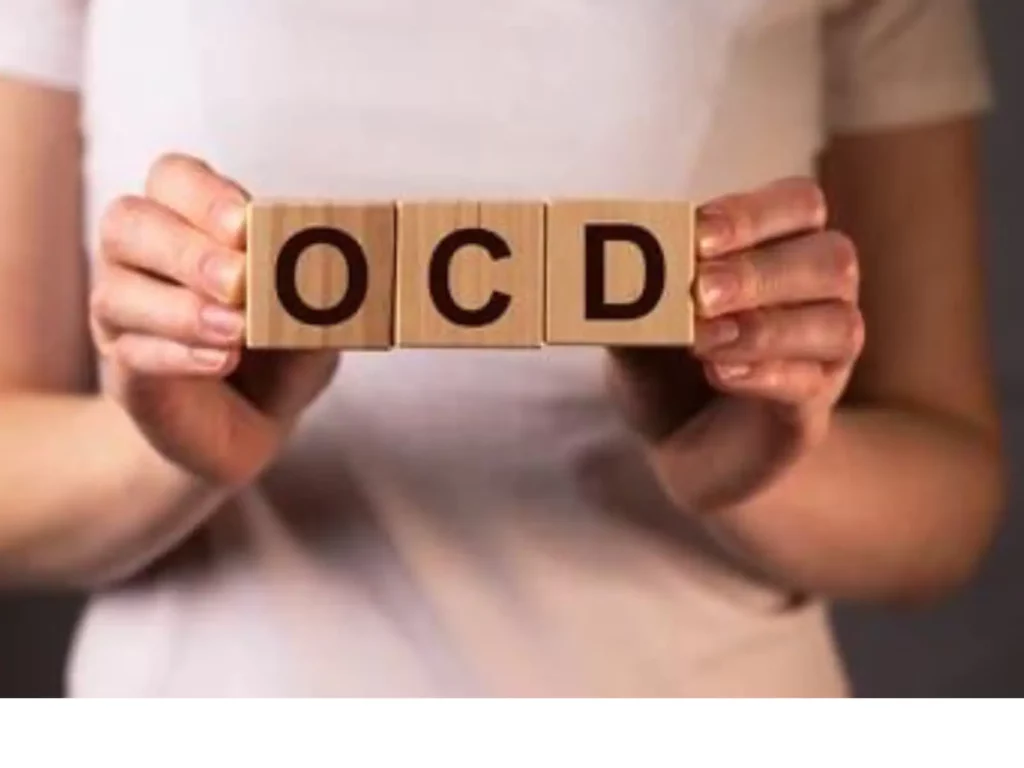Do you ever feel like you’re stuck in a rut? That you can’t escape the cycle of repetitive thoughts and behaviors? If so, you’re not alone. Repetitive compulsive behavior is a common problem that many people struggle with. In this blog post, we will discuss the meaning of repetitive compulsive behaviors, and explore some of the causes and treatment options. We hope that this information will help you find relief from your symptoms and improve your quality of life.
Contents
What Is Repetitive Compulsive Behavior?
 Repetitive compulsive behavior is a mental health disorder characterized by persistent thoughts, urges, or behaviors that can be difficult to control. People who suffer from this condition often feel compelled to engage in certain activities repeatedly. In simple words, it is a type of anxiety disorder that makes you obsess over certain activities or thoughts.
Repetitive compulsive behavior is a mental health disorder characterized by persistent thoughts, urges, or behaviors that can be difficult to control. People who suffer from this condition often feel compelled to engage in certain activities repeatedly. In simple words, it is a type of anxiety disorder that makes you obsess over certain activities or thoughts.
It is estimated that up to 40% of people with obsessive-compulsive disorder (OCD) have some form of repetitive compulsive behavior. However, they could be associated with other mental health disorders. People with repetitive compulsive behavior may also have difficulty in maintaining relationships and performing daily activities.
Therefore, it is important for you to seek professional help if you or someone you know is struggling with it. Otherwise, it can lead to more serious mental health issues.
What Are Some Examples?
There are numerous types of repetitive compulsive behavior that can manifest in different ways. Some of the most common include:
Cleaning or washing rituals
This is one of the common examples of repetitive compulsive behavior. A person can feel the need to wash their hands, or clean particular items or surfaces over and over again. In fact, it can be difficult to stop or resist the urge to clean. And that can further complicate their daily life.
Checking rituals
People with OCD may feel the need to check things repeatedly, such as locks, switches, and appliances. These behaviors may be triggered by a fear of harm or danger, and are often performed in order to provide reassurance that everything is safe. Also, they may feel the need to check things a certain number of times or in a specific order.
Hoarding
Hoarding is another type of repetitive compulsive behavior. People may feel the need to collect and save a large number of items for fear of needing them in the future. This can become so severe that it begins to interfere with a person’s daily life.
Counting rituals
Another example of repetitive compulsive behavior is counting. This can involve counting certain objects, actions, or thoughts. For instance, a person may feel the need to count how many steps they take when they walk or how many times they blink their eyes. This behavior can be difficult to resist and may cause distress or anxiety if it is not done.
Repeating words or phrases
In some cases, people with OCD may feel the need to repeat words or phrases, either internally or out loud. This may be done as a form of self-affirmation or as a way to reduce anxiety. It can also become so severe that it interferes with the person’s ability to carry out normal tasks. For example, “I must, I must, I must” or “I can do this, I can do this”.
Skin picking
 Finally, some people may be bound to repetitively pick, scratch, or rub their skin. This can be due to anxiety or a feeling that something is not right with their skin. It can manifest in different ways, including scratching until the skin bleeds or picking at acne. This type of behavior can be difficult to resist and may lead to further complications, such as infection or scarring.
Finally, some people may be bound to repetitively pick, scratch, or rub their skin. This can be due to anxiety or a feeling that something is not right with their skin. It can manifest in different ways, including scratching until the skin bleeds or picking at acne. This type of behavior can be difficult to resist and may lead to further complications, such as infection or scarring.
All in all, these examples of repetitive compulsive behavior can be both disruptive and distressing. It is important to seek help if you or someone you know is struggling with these behaviors. With proper diagnosis and treatment, these behaviors can be managed and overcome.
What Mental Illness Causes You To Repeat Things?
When it comes to mental illness, there are many different disorders that can cause a person to repeat things. One of the most common is Obsessive-Compulsive Disorder (OCD). People with OCD often experience intrusive thoughts or images that they feel compelled to repeat in order to reduce their anxiety.
However, this is not the only mental illness that can cause a person to repeat things. Other disorders might include:
- Autism Spectrum Disorder (ASD)
- Attention-Deficit/Hyperactivity Disorder (ADHD)
- Tourette Syndrome
These conditions can also lead to repeating the behavior. In these cases, the symptoms are often part of a larger pattern of maladaptive behavior or thought patterns that require professional treatment.
So, be sure to contact a mental health professional if you find yourself repeating things and are unsure of why. They will be able to provide an accurate diagnosis and create a tailored treatment plan to help you manage your symptoms.
What Triggers Repetitive Compulsive Behavior?
Well, the causes of repetitive compulsive behavior are not always clear, but some potential triggers include:
- Stressful or traumatic experiences. People who have gone through a traumatic event or a period of high stress may start to engage in repetitive behaviors as a way of coping.
- Genetics. Some studies suggest that genetics may play a role in the development of OCD. As some people seem to be more prone to it than others.
- Neurobiological abnormalities. Abnormalities in certain areas of the brain may be linked to OCD, as well as imbalances in brain chemicals.
- Learned behavior. It’s possible that OCD behaviors could be learned from others or as a result of environmental factors.
In addition to these potential causes, there are some other triggers that might be potential contributors to OCD, such as:
- Certain medications
- Physical issues like thyroid conditions or metabolic disorders
- Dietary intolerances
The exact cause of OCD is still unknown, but it’s important to seek help when dealing with the symptoms. If left untreated, they can worsen over time and become more difficult to manage.
How Is It Diagnosed?
 Now, the role of diagnosis for repetitive compulsive behavior is to help identify the underlying cause of the behavior and determine what type of treatment would be most beneficial for the individual.
Now, the role of diagnosis for repetitive compulsive behavior is to help identify the underlying cause of the behavior and determine what type of treatment would be most beneficial for the individual.
Diagnosis is typically performed by a licensed mental health professional like a psychiatrist or psychologist who can assess the person’s symptoms. And talk to them about their medical history, and observe their repetitive behaviors. This assessment will help provide a better understanding of the person’s mental health condition and symptoms.
In some cases, a physical examination may be done to rule out any medical conditions that could be causing or contributing to the behavior. Additional tests including laboratory tests, psychological assessments, and imaging studies may also be recommended to help with diagnosis.
Hence, with an accurate diagnosis, an effective treatment plan can be created to help reduce the severity of symptoms, and enable individuals to lead healthier lives.
How Can You Manage Your Repetitive Compulsive Behaviors?
It might seem difficult to manage your repetitive compulsive behaviors. But with the right tools and strategies, it is possible to reduce their intensity and frequency. Here are a few treatments options that can help:
- Cognitive-Behavioral Therapy (CBT): CBT is a type of therapy that helps people to identify and change negative thought patterns that can lead to unhealthy behaviors. It also teaches strategies for managing stress and emotions in order to reduce the severity of obsessive thoughts and compulsive rituals.
- Exposure Response Prevention (ERP): ERP is a type of therapy that helps to desensitize people to their fears and anxieties. It involves exposing the person to feared objects or situations in order to reduce fear and anxiety responses.
- Medication: In some cases, medication may be recommended as an adjunct to therapy. Medications can help reduce obsessive thoughts and compulsive behaviors, as well as improve overall mood and functioning.
- Self-Help Strategies: There are also self-help strategies that can be used to help manage compulsive behaviors. These include learning how to identify triggers for your symptoms, practicing relaxation techniques like deep breathing or progressive muscle relaxation, and engaging in healthy activities such as exercise or yoga.
These are a just few common and proven treatments for repetitive compulsive behaviors. It’s important to understand that treatment should be tailored to your individual needs. And that it may take time to find the right approach for you.
Additionally, it’s also important to remember that while it might not always be easy, recovery is possible. With the right coping strategies and support, you can learn to manage your repetitive compulsive behaviors and live a more fulfilling life.
Conclusion
In conclusion, repetitive compulsive behaviors may seem overwhelming and difficult to manage. But with the right diagnosis, treatment plan, and strategies, it is possible to reduce their intensity and frequency. It’s important to remember that recovery is possible with the right support.
Do not forget to talk to your doctor or mental health provider if you think you have repetitive compulsive behaviors. They can provide a comprehensive assessment and treatment plan tailored to your individual needs. With the right help, you can be sure to manage your symptoms and lead a healthier life.
For more information and guidance, please contact MantraCare. OCD is a mental health disorder characterized by obsessions and compulsions. If you have any queries regarding Online OCD Counseling experienced therapists at MantraCare can help: Book a trial OCD therapy session


